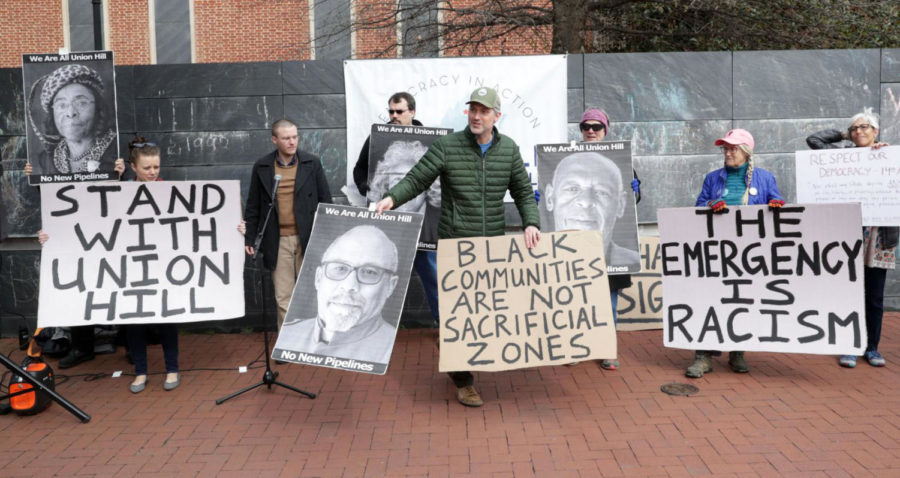Opinion: Northam Needs to Reconcile with Union Hill
Photo by: Andrew Shurtleff/The Daily Progress
A push to end the planned natural gas compressor would show a true desire for reconciliation
Ralph Northam has been a prominent name in the frenzy of scandals currently swirling around Virginia’s government after a photo showing a man in blackface and a man in a KKK hood on his 1984 VMI yearbook page surfaced, prompting a series of statements where he admitted to wearing blackface – but ultimately claimed to not be in the photo. This sparked calls from dozens of Democrats, government officials, and progressive groups for Northam to resign from office – a call that he has repeatedly refused amid continued protests demanding he step down.
Currently, the governor is on a “reconciliation tour” in an attempt to save face – but he’s failed to fully address the controversial plan by Dominion Energy to build a new natural gas compressor in Union Hill, a historically black community started by freed slaves.
Dominion’s proposed pipeline section and station would be a part of the Atlantic Coast Pipeline that has faced fierce opposition. The community most affected would likely see some of their land destroyed and face an extremely negative environmental impact overall.
Northam, who has taken in almost $200,000 in campaign donations from Dominion, has been silent on the issues of the project. His own Advisory Council on Economic Justice (ACEJ) issued a letter in mid-August 2018 calling for the governor to delay the pipeline and investigate pressing environmental concerns, including “disproportionate impacts for people of color and for low-income populations due to gas infrastructure expansion.” Northam entirely ignored this recommendation, and he’s now created a new council that effectively replaces the ACEJ.
In addition, last November, he removed two people on the State Air Pollution Control Board after they brought up the “disproportionate impact” the pipeline would have on Union Hill, and replaced them with members seemingly more supportive of approving a pipeline permit.
These actions are already suspect on their own, but for Northam, they stand in stark contrast to his commitment to a new focus on racial issues. If he is as serious about healing the “deep wounds” in Virginia as he claims, he needs to deal with the concerns of the Union Hill community. Words mean nothing when actions say otherwise, and Northam’s complacency on a project that will ravage a historic African-African community enables the marginalization of minorities to continue in Virginia. Ultimately, Northam has no real hope in addressing issues of race if he continues to ignore a blatantly obvious example.


